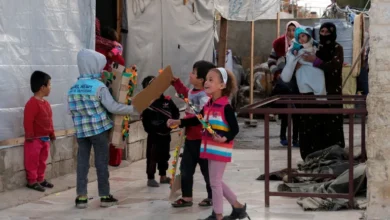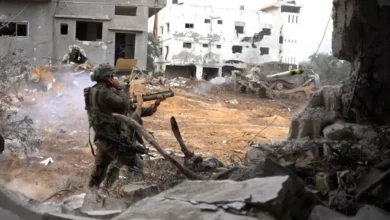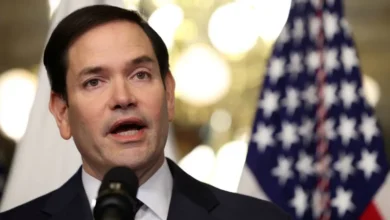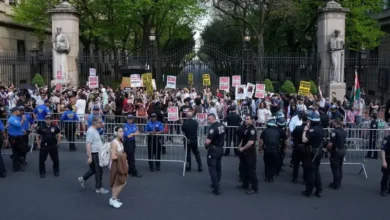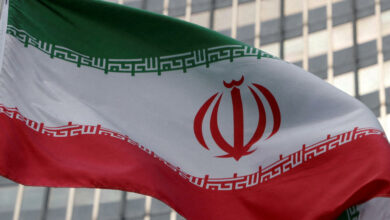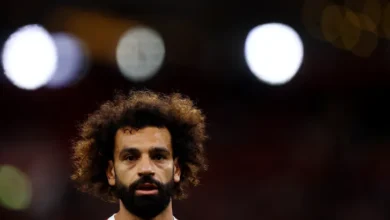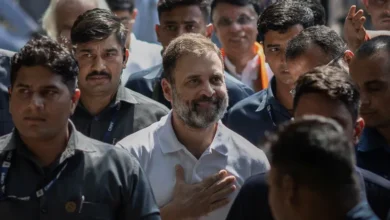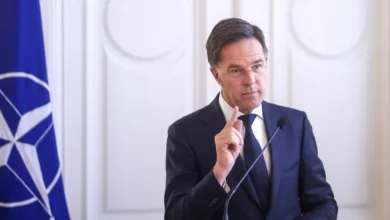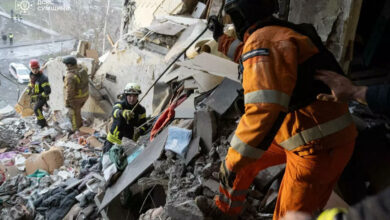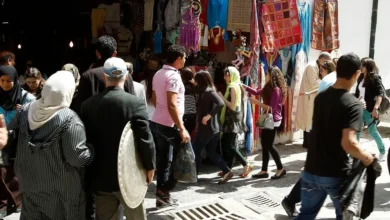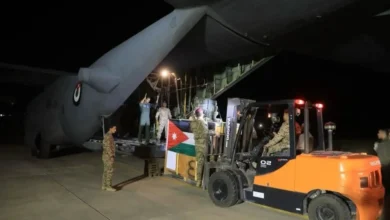‘Jolt to reality’: Gaza war shakes up South Africa’s election campaign
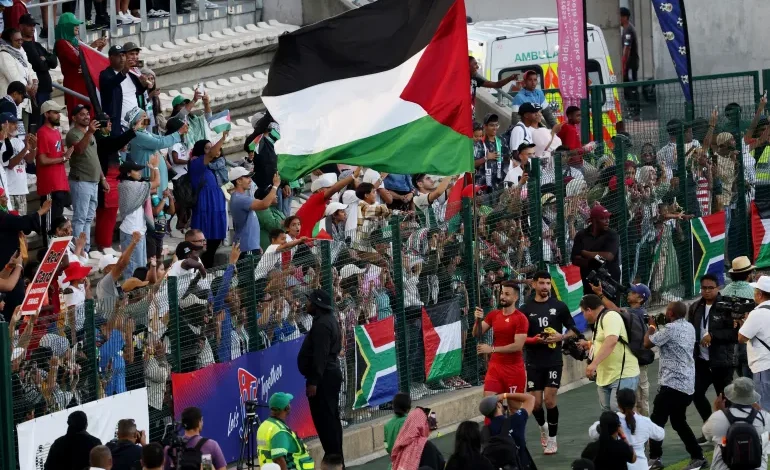
Three months to South Africa’s much-anticipated general elections, the political landscape is being remade.
Since Cyril Ramaphosa became president in 2018, domestic issues like corruption within the government, rolling power cuts, and a wobbling economy have been hotly debated but Israel’s war in faraway Gaza has become a key election issue in recent months.
Since the apartheid era, the topic of Palestine has been a major point of division in South African politics as the white government stood firmly with Israel while the anti-apartheid movement saw Palestinian resistance aligned with its own.
But Israel’s continuing war in Gaza since October has forced political parties to lay their cards on the table. The two largest parties in particular – the ruling African National Congress (ANC) and the main opposition the Democratic Alliance (DA) – are likely to see their constituencies change because of their positions on the war.
The ANC-led government has been unambiguous in its pro-Palestine stance. South Africa was one of the first states to refer to Israel’s actions in Gaza after the October 7 Hamas attack as “genocide”, and early on referred Israel to the International Criminal Court. In January, Pretoria also dragged Israel to the world’s highest legal authority, the International Court of Justice.
The DA, on the other hand, has flip-flopped between its initial steadfast support for Israel and more recent ambivalent rhetoric about “peace”.
On October 8, Emma Powell, the DA shadow minister for international relations and cooperation, released a statement condemning “Hamas’ unprovoked attack on Israeli territory today during the religious holiday of Simchat Torah … The DA condemns this senseless violence and all acts of terror against innocent civilians, women, and children and calls for aggressors to this conflict to immediately withdraw.”
A month later, as the number of deaths in Gaza rose drastically, the party shifted to more centrist rhetoric, with leader John Steenhuisen saying: “The (DA) stands in solidarity with both Palestinians and Israelis who seek a two-state solution … we embrace rationality based on peaceful co-existence for both a secure Israel and a free Palestinian state.”
Unlike the Economic Freedom Fighters and other smaller opposition parties, the DA has never called for a ceasefire or used the term “genocide” regarding Israel’s killing of Palestinians.
And ahead of the May 29 vote, it is the ANC’s moves that have proven to be wildly popular within and beyond South Africa.
A realignment of the electorate
Before October, the chances of the DA pulling off an upset at the national level were rising.
